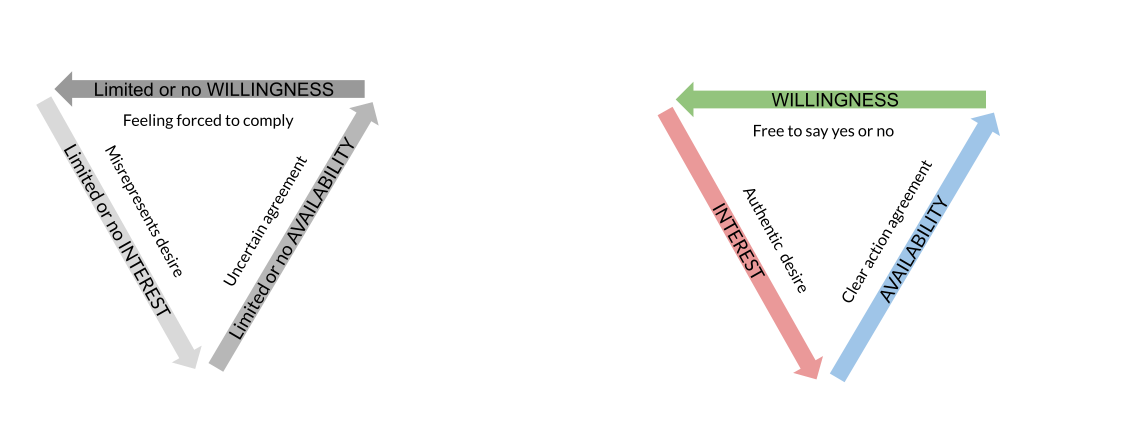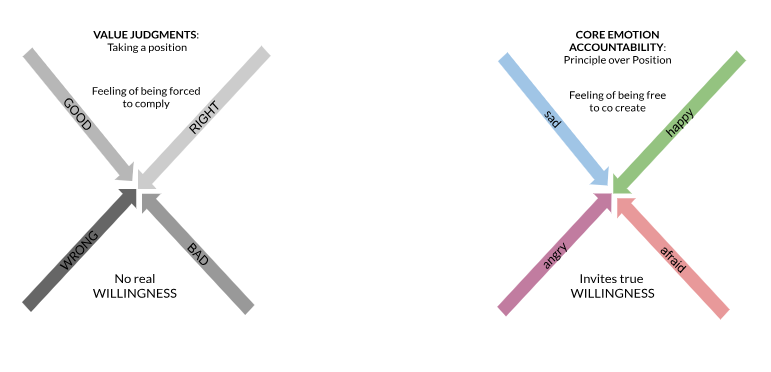What if the way to thrive in your relationships is not to change the people around you?

“No one has ever loved anyone the way everyone wants to be loved.”
– Mignon McLaughlin
How to work with Tanya for $49.00
Step 1:
Review the exercises below and choose the best one for you.
Step 2:
Click book a session for each exercise you have chosen to work on.
Step 3:
Choose a date and time from the appointment calendar and secure the appointment a $49 fee per exercise.
Step 4:
You can choose the right extended program for you after our first session to continue working together.
That’s it.
Conscious. Connected. Resourced.
Relating consciously takes practice.
Let’s start together.
We ALL want our relationships to feel enlivening, enriching, and like true partnership.
But first we have to learn the skills (yes, skills) needed to tease apart ourselves from others, to tell the truth, to face anger, fear, sadness, happiness and everything in between. And to do so as willing creatures who are conscious and aware of the quality of the demands we make and the ones we accept.
So much gets in the way of being the person you need and want to be in your relationships, both with yourself and others. Habits, family dynamics, years of assumptions and learned reactions, trauma, unchecked fear… the list of causalities of crumbling relationships is very, very long. But the simplest truth is this: we as a culture are not offered the skills and learning needed to gain a vital and necessary sense of who we are and how to function without relying on external validation. And in the absence of this ability, we crave whatever our individualized version of truth and what true desire looks like and then try to mold our loved ones around those cravings.
But when you learn how to be fully conscious of the power dynamics between two (or more) humans in relationship and are resourced enough to deeply grapple with the complexity afoot, you can attend to each other without manipulating or leveraging pain. You can begin to honor and experience your actual desires, together.
That’s what it is to revel in relationships.
My work is to restore the connection with your current sense of your self and your conscious, erotic, true being so you can experience yourself authentically, which then allows you to express yourself with others…authentically.
When two people can do that together honest connection can take root.
I work with individuals, couples, and in small groups (romantically involved or not) to open the process of personal accountability, relational responsibility, and group skills development needed to truly uncover and thrive in your own aligned desire – in relationship with others from the truth of being in your very own skin.
The demand of this work is high, but the payoff is vast and truly life changing.
If you find yourself nodding along and recognizing your desire for what you’ve read thus far, I invite you to reach out.
You do not need to be in the midst of a relationship crisis to ‘need’ this work. What I do is not therapy and it is not a map to follow to ‘fix’. What it is… a deep, guided mentorship designed to connect you to lost wisdom, innate truth, and an aligned sense of who you are and how you are made uniquely to relate with others.
Exercise: Am I Reacting or Relating?
React → Recognize → Relate Model
- Learn to identify a reaction before it runs away with the moment
- See how to work with instead of against the reaction
- Practice the skill of identifying what is beneath the reaction and bring it into recognition and then, relating.
- EXAMPLE: My reactions get very elevated when I hear people complaining about problems and not offering solutions. I can feel my chest and my jaw tighten and my mind starts racing with criticism!
If I speak from the reactive state I am feeling, I am very likely to respond with a very sharp sounding criticism that I’ll probably need to apologize for.
If I can wait and I recognize the core intention I am attempting to defend by my reactiveness, like respect or dignity, my ability to orient myself from those very values of respect and dignity, enable me to relate toward the other person from my own desire to honor those values.
By reorienting and reevaluating a reaction as a response to an important set of personal values being disrespected, we can be more in service to those values and less shackled by our egoic protect and defend mechanisms.
Click here to work with Tanya using this exercise – Am I Reacting or Relating?

Exercise: Be an Authentic Yes or No
Interested → Available → Willing Model
- Learn to accurately identify and communicate what your true interests are and what actual resources you have available to offer toward those interests
- See the way to communicate your interests and availability clearly to eliminate confusion and assumptions when accepting invitations or making agreements
- Practice the skill of saying yes, no, or maybe with clear terms
EXAMPLE: I get very annoyed and frustrated when there is a stack of shoes by the door being tripped over and looking messy instead of shoes neatly placed and accessible.
IF I speak from the energy of my annoyance and frustration ( a hyper aroused and fixed state of reaction) I will say something like, “I hate this pile of shoes in the way and looking so messy. Please put your extra shoes somewhere else!”
IF I speak from the energy of my authentic interest (a clarified arousal state of recognition for the interests of neatness, order, accessibility) I will say something like, “hey, keeping this area neat and accessible is really important to me and I feel really frustrated about this right now. Will you please keep only two pairs here and stow the others in your closet?”
By reviewing and clarifying your own actual interest, availability, and therefore willingness, you can de-escalate the intensity of a request for correction and leave room for the other to experience a sense of more cooperation, less criticism. More freedom, less force.
Click here to work with Tanya using this exercise – Be an Authentic Yes or No.

Exercise: Be Uninsultable
Insult→Injury→Invitation Model
-
- Learn to see insults as the flag that sends you to get clear about what you actually want/need from the issue
- See the injury you are cultivating as a way you may be protecting yourself from the work you need to do about the issue.
- Practice building the skill of offering authentic invitations
EXAMPLE: I feel really nervous to ask my partner about having a particular kind of exciting adventure with me. I am nervous because they don’t always enjoy the same things I do and sometimes they get annoyed and defensive about ‘having to do my thing’ and feel forced. What I really want is to connect with them during an occasion that brings me an experience of delight!
IF I speak from the energy of my anxiety and nervousness ( concern for feeling insulted and then injured) I may say something like, “I really wish you would come with me to the (insert your exciting adventure moment here)” please, would you do it for me?
IF I speak from the energy of my authentic interest (What I really want is to connect with them during an occasion that brings me an experience of delight) I might say something like, “Hey, I have something really special I want to share with you even though I know it isn’t your favorite thing to do. What I really want is to be with you while I am experiencing the joy of this adventure so we can share that part together. Will you please consider joining me and I will join you on one of yours if you would like?” “And if you really don’t want to, I won’t be resentful or critical, I will accept your response even if I feel disappointed.”
By reviewing and clarifying your own concern for the possibility of taking a no as an insult and then feeling injured by the no, you can preserve the integrity of the environment for a request and leave room for the other to experience a sense of more enjoyment and freedom, less force and feeling the need to comply in obligation.
Click here to work with Tanya using this exercise – Be Uninsultable.

Exercise: Free Yourself from Value Judgments
Good→Bad→Right→Wrong Model
-
- Learn to properly identify if your inherited value judgments (automatic associations) are in the way of clear and fault free communication.
- See the way to communicate your automatic associations as a practice of identifying your emotions and communicating authentically from core emotions rather than reactive automatic associations.
EXAMPLE: I try to communicate something important to another person by clarifying my boundaries and asking for respect for those boundaries. I notice though, that I feel I have to be forceful to get my point across. The other person senses the frustration and gets protective of their own reactive feelings and the conversation is very difficult and doesn’t end well.
IF I speak from the energy of my value judgments ( I am right, they are wrong, my behavior is good, theirs is bad) I will say something like, “You are being defensive and we can’t have this conversation or make this right if you won’t listen to me!”
IF I speak from the energy of my authentic emotion (angry, afraid, sad, unhappy) I will say something like, “Hey, this feels important and I know it could be sensitive for both of us. I will try, and will you try, to have an honest conversation without value judgments and offer each other some practical solutions instead?”
By reviewing and clarifying your own defensive emotional states that are overly protective of your side, you can help the other person stay calm and confident that there is a good way through even a difficult conversation. More freedom, less force, for everyone.
- Click here to work with Tanya using this exercise – Free Yourself From Value Judgments

Want to know more? Let's Connect.
